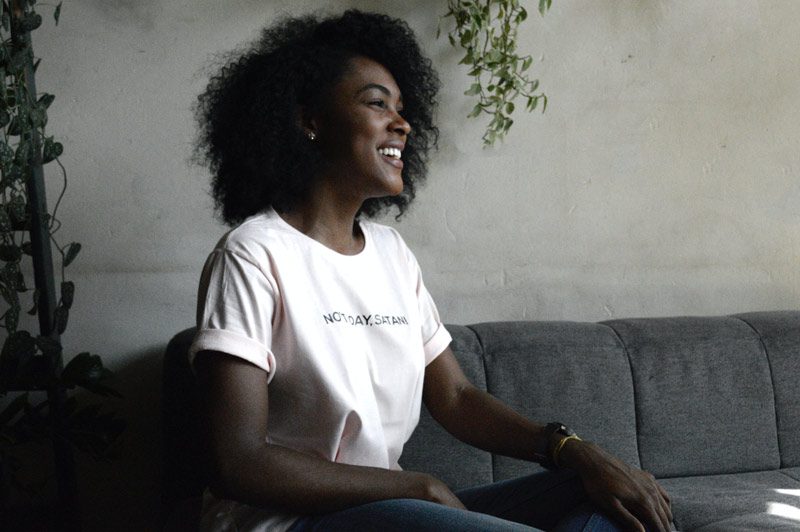Hello, mental health champions. Today I want to dive into Pure OCD and my personal struggle with it. I went undiagnosed for seven years, and during that time, I had the brain battle of a lifetime. Pure OCD sufferers battle intrusive thoughts that can be of varying themes and intensities. So often, we see OCD (obsessive-compulsive disorder) depicted as extreme cleanliness and organization. However, OCD can often show up with intrusive thoughts, which can be incredibly debilitating.
My intrusive thoughts started in seventh grade. It started with mean thoughts about people I loved and continued to escalate in intensity. I personally battle “harm OCD” and “relationship OCD” the most. This means my thoughts have themes of harm and questioning my relationships. Intrusive thoughts have nearly ruined my life on many occasions. A couple of years ago, I finally learned how to get over these thoughts, and now I rarely have them. I don’t allow these thoughts to bother me and genuinely feel that I have won this part of my OCD battle.
Now let’s dive into how I went about getting rid of these thoughts. Intrusive thoughts are so difficult because they often attack the things we love and believe. It can be very confusing to have thoughts about harming someone you care about more than anything in the world. It can feel like you are a horrible person and a danger to society. In reality, these are intrusive thoughts because they are unwanted. These thoughts bring nothing but distress, pain, and guilt. And although the guilt is unwarranted, most people feel it because they know they would never want to harm anyone or hurt anyone else’s feelings. You get those feelings of guilt as if you are just a horrible person. Well, let me tell you—you’re not.
The way I like to deal with intrusive thoughts is to look at them for what they are. Intrusive thoughts are just symptoms of OCD. It is a way your brain tries to process certain things in your life. For me, intrusive thoughts flared up when things in my life were out of control. They would start up when I had a trigger and wasn’t sure how to handle it. Everyone has intrusive thoughts, but OCD sufferers will ruminate with those thoughts until they go out of control. So how do we stop the spinning and escalating of thoughts into anxiety, panic, and guilt? I will take you through my steps!
The first step for me was realizing that these aren’t MY conscious thoughts. I don’t want these thoughts, they aren’t what I believe or feel, and therefore they aren’t true. When I realized that I am not producing these thoughts myself, it got easier to remove the guilt.
I think the reason these thoughts have so much power is the guilt and shame they bring with them. Realizing this first step was the hardest for me. I thought I deserved to feel guilt and pain until I realized something. OCD is a mental health disorder. If someone has a physical health issue such as asthma, do we blame them when they start to have symptoms like tightness in their chest? No. Why would we? Those symptoms are part of the disorder they cannot control. So why should I beat myself up for having a symptom of my disorder? I shouldn’t! Realizing that these thoughts weren’t my fault changed everything for me and helped me move on to the next steps, which were easy after getting this first one down!
The next step is removing the guilt and anxiety from the thoughts. I never thought this would be possible, but once you realize that your conscious brain doesn’t produce these thoughts, it’s easier not to feel bad about them. When I was finally able to remove the guilt from these thoughts, they went away. YEP. They freaking went away! It took time, and it wasn’t a super easy process, but it was worth it. At first, I would have the thought and not acknowledge it and go about my day, and then within a couple of days, I didn’t have anymore.
I will still have intrusive thoughts from time to time, but I have learned how to not feed into them and go down a dangerous spiraling path. It takes a lot of self-forgiveness and self-awareness to know that these thoughts aren’t your fault, and they definitely don’t alter who you are as a person. I always remind people that your personality is separate from your mental health issues, and there is so much more to you than just your disorder or issues. Remember that your thoughts are just symptoms and don’t need attention or emotions attached. You deserve to feel free of intrusive thoughts and the guilt that comes with them.
Talk to you soon, brain-battlers!
About the Author: My name is Marigrace, and I am 21 years old living in Chicago, IL. I am currently a student pursuing my Bachelor’s in Marketing. I have suffered with mental health disorders like OCD, GAD, Panic Disorder, and Eating Disorders. Last year, my boyfriend and I launched our mental health apparel company, Love-Brain. Our goal was to raise awareness about mental health with our fun apparel and blog!
Photo by DISRUPTIVO on Unsplash
The opinions and views expressed in any guest blog post do not necessarily reflect those of www.rtor.org or its sponsor, Laurel House, Inc. The author and www.rtor.org have no affiliations with any products or services mentioned in the article or linked to therein. Guest Authors may have affiliations to products mentioned or linked to in their author bios.
Recommended for You
- Laughter as Therapy: How Humor Supports Emotional Recovery - December 8, 2025
- When Teenage Stomach Pain Signals Anxiety: A Pediatric GI Doctor Explains - December 4, 2025
- From Panic to Progress: Managing Anxiety After Making a Mistake at Work - December 1, 2025






Wonderful article and so enlightened! I applaud your recognition of these issues and letting people know it very common. Removing the stigma on mental health issues helps all of us. Thank you for your honesty!